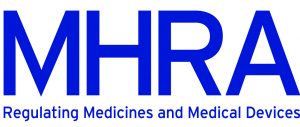News
Reporting problems with medical devices
This article has been provided by the Medicines and Healthcare products Regulatory Agency (MHRA)
Who investigates safety problems with Medical Devices?
MHRA regulates medicines, medical devices, and blood products for transfusion in the UK by ensuring they work and are acceptably safe. Our priority is patient safety; we protect and improve public health through effective regulation.
The number and type of medical devices is growing and so the importance of learning about safety problems that occur with devices when they are used increases.
What are medical devices?
The broad group of products which are classified as devices is continually expanding. Medical devices cover a wide range of products – from sticking plasters to hip replacements, from contact lenses to personal oxygen tanks and implanted pacemakers. These devices and others like them, can be found in your home once they have been CE marked (a symbol that represents that the device complies with European regulations).
Many items included in the term assistive technology are medical devices such as wheelchairs, artificial limbs, hospital style beds, pressure relieving mattresses and hoists. We have more information on assistive technology on our website.
There is also the growing use of healthcare apps and stand-alone software, meaning the number of devices available on the market is steadily increasing. And it’s not just the products that are diversifying; the users of medical devices are too. Patients and members of the public, along with healthcare professionals, are using medical devices for diagnosis and to monitor health. Medical devices designed for hospital use are also increasingly being used by patients in the home through NHS ‘hospital at home’ type initiatives.
What role do manufacturers play in keeping devices safe?
Despite the regulations that manufacturers have to meet before selling their devices, problems can still arise when devices are used on a day to day basis. Manufacturers must continue to actively monitor their devices’ safety and performance when they’re available on the market. This includes a legal duty to report any adverse incidents and field safety corrective actions involving their devices to the MHRA.
An adverse incident could be any event that caused, or almost caused, an injury to a patient or other person, or a wrong or delayed diagnosis and treatment of a patient. We use these reports to further investigate and review the safety of devices. Additionally, we use this information to require improvements to products, or, if needed, to remove them from market.
What role do users play in keeping devices safe?
Anyone can report a problem with a medicine or a medical device via the Yellow Card Scheme. Every report matters, and these direct reports are an important source of information. Reports of an adverse incident enable us to develop a robust evidence base of devices safety so we can take action if necessary.
We evaluate any incidents reported through the Yellow Card Scheme together with additional sources of information such as clinical trial data, medical literature or data from international medicines regulators.
We encourage all those who work with medical devices, as well as people using them, to play an important role in helping keep patients safe by reporting. Therefore if you have ever used a medical device and had any problems then report to us using the Yellow Card website.
Medicines and Healthcare products Regulatory Agency (MHRA)